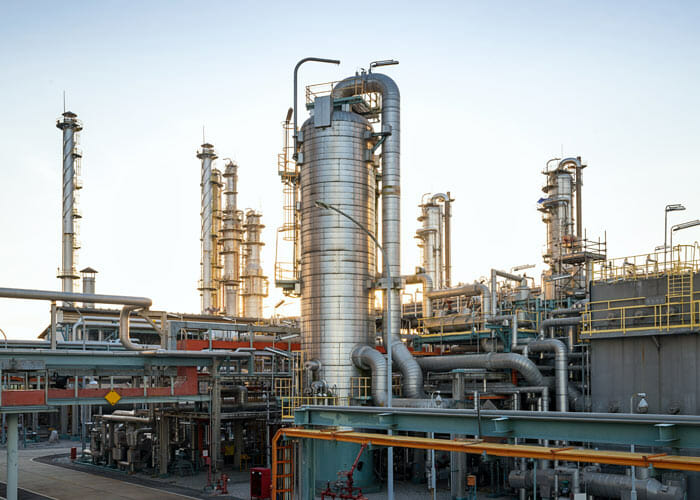June 30, 2020
- Oil & Gas
- Canada
- Chemicals
Turnaround Vapour Phase Cleaning During COVID-19

Early job set-up and planning reduced the personnel intensity needs to meet COVID-19 safety requirements and the project being completed 15% under-budget with Zero incidents
Vapour Phase cleaning was conducted on a plant in the Fort McMurray, Alberta area where the following equipment was cleaned:
- Feed Heat Exchangers
- Water Trim Coolers
- H2S Stripper and Auxiliary Equipment
- Ammonia Stripper and Auxiliary Equipment
- Sour Water Degasser
- Cold Condensate Coolers/Pumps
Due to the COVID-19 pandemic, planning was conducted well in advance to ensure smooth and safe execution:
Early Job-Set Up and Procedure Development
An execution procedure outlining equipment, amount of chemistry, injection points/rates was written, and client approved months before execution. One week before job kick-off, a small team completed a preliminary set up by tagging injection points and equipment set up. This set-up in advance ultimately reduced the amount of personnel required that would typically be needed during execution.
Four Stage Vapour Phase Cleaning
A four-stage cleaning process was used to remove several types of contaminants. First, FQE Solvent H was used to deal with the built-up sludge, next FQE LEL-Surface and FQE H2S Scavenger were applied to remove LELs and H2S. Following this, FQE Pyrophoric was used to eliminate pyrophoric materials. Lastly, equipment contaminated with Ammonia received an injection of FQE Ammonia Odor. Due to the advance set up already being complete prior to job execution, the job was completed earlier than planned and 15% under budget.
COVID-19 Safety Measures
The FQE pandemic plan was used in addition to our client’s policy for safe work regarding COVID-19. Safe distancing, reporting, and masks protocols were strictly adhered to, which resulted in zero transmissions of COVID-19.
Highlights
Vapour phase cleaning was conducted to address sludge, H2S, LELs, pyrophoric and ammonia in vessels
Early job set up allowed for a reduction in personnel intensity requirements
Robust planning and advance set up resulted in 15% under-budget execution